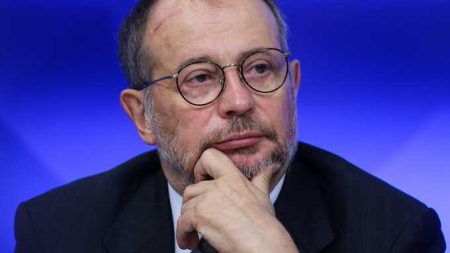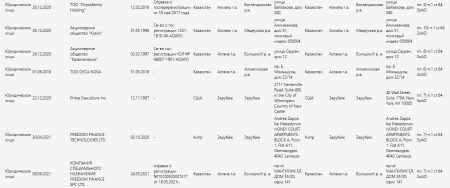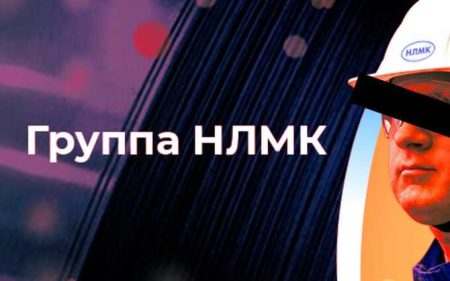The Antimonopoly Service discovered that MMK, NLMK, and Severstal were at fault for setting excessively high prices in the flat-rolled metal market.
As a result, manufacturers saw a threefold increase in profits. The service has instructed these companies to stop abusing their dominant position, and fines will be determined separately.
The Russian Federal Antimonopoly Service has concluded a nearly year-long investigation into excessively high prices in the flat-rolled metal market.
Three metallurgical companies, including NLMK led by Vladimir Lisin, MMK led by Viktor Rashnikov, and Severstal led by Alexei Mordashov, have been found guilty of violating antitrust laws.
Only facts
The Federal Antimonopoly Service points out that these companies, which control over 70% of the market, intentionally raised and maintained prices for hot flat steel through mutual agreement.
It is worth noting that the FAS's argumentation is quite convincing. The department highlights the noticeable increase in prices for hot-rolled steel compared to production costs. The FAS was not persuaded by the companies' arguments that buyers could always negotiate lower prices. The department received numerous complaints, indicating otherwise.
Additionally, the antimonopoly service found that there was no significant increase in domestic consumer demand for the companies' products last year. Nonetheless, the companies managed to triple their profits relative to 2019-2020.
Regarding the demand from foreign contractors, the metallurgists could not prove the existence of unmet demand. According to the FAS, this further demonstrates the lack of market factors to justify raising domestic prices to match export prices.
Thus, the antimonopoly agency rightly concluded that the dominant companies raised prices in the domestic market solely based on foreign product quotations, thereby blatantly violating Article 10 of the competition protection law.
be fine
Based on these findings, the FAS has issued an order for the companies to cease their abusive dominant position. However, these companies are unlikely to escape with just a warning. The FAS will soon launch an administrative violations case, and fines will be calculated for each company.
According to Vedomosti, citing data from an antimonopoly department representative, the fine for NLMK Vladimir Lisin, MMK Viktor Rashnikov, and Severstal Alexei Mordashov could be calculated as a percentage of their 2020 market revenue. The fine could range from one to 15% of this figure.
As per the January report, presented by Bank of America (BofA) analysts, MMK may have to pay a hefty fine ranging from four to 60 billion rubles.
NLMK and Severstal could face fines ranging from one to 15 billion rubles and from one to 16 billion rubles, respectively. Therefore, the fines for MMK will amount to 1-20% of EBITDA for 2022, for NLMK – 0.3-4% of EBITDA, and Severstal – 0.3-5% of EBITDA, as stated in the report.
Dissenters
The reaction of the guilty companies was quite expected. They claimed that the antimonopoly agency's decision was wrong and declared their intention to take legal action.
Severstal described the FAS decision as a “dangerous precedent”, emphasizing that it poses a threat to the mechanisms of the market economy in Russia and discriminates against domestic producers compared to foreign competitors.
NLMK and MMK representatives mentioned that they provided the antimonopoly agency with ample direct evidence that they do not hold a dominant position in Russia's hot-rolled steel market. They point out that the market share of each major player can change significantly during the year. However, this claim is not supported by specific figures.
Clear Benefit
It's worth noting that cases against NLMK's Vladimir Lisin, MMK's Viktor Rashnikov, and Severstal's Alexei Mordashov were initiated by the antimonopoly service in April last year. Major consumers of their products, such as Gazprom, Rosneft, SSK Zvezda, the Association of Carriage Builders, and the Association of Shelving and Warehouse Equipment Manufacturers, were involved in the investigation.
The Federal Antimonopoly Service made preliminary conclusions at the end of last year, and based on them, it was unlikely that the metallurgists would be satisfied with the trial results.
The increase in metal prices in global and Russian markets began at the end of 2020. Comparing the prices for hot-rolled steel in Russia at the start of last year with those recorded almost five months later, the rise in the price of one ton is quite evident. To be specific, prices surged from 65,000–70,000 rubles to 97,000–111,000 rubles per ton.
This substantial price hike greatly boosted the incomes of metallurgists. For instance, Severstal's revenue under IFRS surged by 63% in the first nine months of last year, NLMK's by 69%, and MMK's by 87%.
Necessary Actions
As a result, the government had to implement export duties on metal from August 1 until the end of last year, aiming to generate approximately 164 billion rubles in additional budget revenues.
Since the beginning of this year, another measure has been implemented – a decision to increase the severance tax for metallurgists, which is linked to raw material prices on world markets, and an excise tax was imposed on liquid steel.
Due to such actions, the Russian authorities hope to withdraw from metallurgists in 2022-2024 over five hundred billion rubles of excess profits.
Judicial perspectives
As for the intention of metallurgical companies to challenge the findings of the FAS in court, according to lawyers, their chances for a positive outcome are minimal.
As Sergey Uchitel, a partner at the Pen & Paper Bar Association, notes, companies usually go to court with the intention of challenging the very fact of the offense, and not the specific amount of the fine. According to the lawyer, the amount of penalties can be reduced, but for this it is necessary to appeal with a large number of extenuating circumstances, which is unlikely in this category.
He also recalled that the decision or order of the FAS can be appealed within three months from the date of the decision or issuance of the order. In the event that an application is submitted to the court, the execution of the order will be suspended until the moment when the court decision enters into force.
Daria Shlyapnikova, a lawyer at Forward Legal, also speaks about the small chances of a judicial victory for the metallurgists. According to her, the statistics of such cases shows that the courts in most cases take the position of the FAS, and the agency rarely loses courts with its participation.




